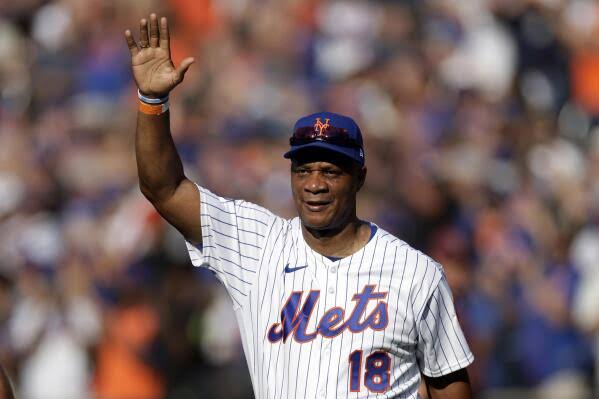So sad He Is Gone’ New York Mets Remembers Legendary Willie Mays.
Mays, who died on Tuesday at 93, had been perfect for so long that the shock of seeing baseball get the best of him was the shock of seeing a god become mortal.
At the end, the Say Hey Kid looked nothing like the extraordinary force who had been at the center of the American imagination for much of the 20th century.
The Kid — Willie Mays — struggled at the plate and stumbled on the basepaths. A line drive arced his way, easily catchable for Mays during most of his career. But he fell. Another outfield mistake caused the game to be tied in the ninth inning.
He was a creaky-kneed 42 years old on that October afternoon, Game 2 of the 1973 World Series — Mays’s New York Mets in Oakland facing the A’s. On the grandest stage, the ravages of time had settled upon the game’s most gilded star.
That he would redeem himself at the plate three innings later is often forgotten. The unthinkable had happened. Mays had not only failed, he had appeared lost, clumsy and out of sorts.
The shock of seeing him that way would linger long past his playing days as a warning: Don’t be like Willie Mays, sticking around too long, stumbling in center field, a shadow of his former self.
Such became the axiom, uttered in so many words by everyone from politicians to business leaders to commentators weighing in on great athletes who yearn to play into their twilight.
In retirement, Mays, who died on Tuesday at 93, did his best to ignore the game that would be his last. But there is another way to view its echoes.
The profound way that Mays’s struggles stirred powerful emotion is a testament to both his greatness and the grip this son of the Jim Crow South once held on Americans of every color and creed.
He had been perfect for so long. The shock of seeing baseball get the best of Willie Howard Mays was the shock of seeing a god become mortal.
How great was he?
Six hundred sixty. That is how many home runs bolted off Mays’s bat during his career. When the Say Hey Kid retired at the end of the 1973 season, only Babe Ruth and Hank Aaron had more.
Mays ended 23 major league seasons with a total of 3,293 hits and held a .301 lifetime batting average, eye-popping for a player with such power. Twenty-four times, he was named to the All-Star team. Twelve times, he won the Gold Glove Award. Ten times, he drove in more than 100 runs.
He was named the National League’s most valuable player twice. If it were not for a need to spread the award among players, some experts say, he could have been the M.V.P. seven more times.
